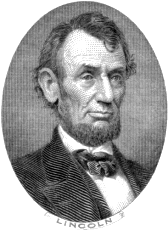Culture is where people make sense of the world, where ideas are introduced and emotions are attached to concrete change. Let's bring it into our political cause.
By Jeff Chang and Brian Komar
Culture is the space in our national consciousness filled by music, books, sports, movies, theater, visual arts, and media. It is the realm of ideas, images, and stories--the narrative in which we are immersed every day. It is where people make sense of the world, where ideas are introduced, values are inculcated, and emotions are attached to concrete change. Cultural change is often the dress rehearsal for political change. Or put in another way, political change is the final manifestation of cultural shifts that have already occurred. Jackie Robinson's 1947 Major League Baseball debut preceded Brown v. Board of Education by seven years. Ellen DeGeneres' coming-out on her TV sitcom preceded the first favorable court ruling on same-sex marriage by eight years. Until progressives make culture an integral and intentional part of their theory of change, they will not be able to compete effectively against conservatives.
Take Moises Kaufman and the Tectonic Theater Project's play, The Laramie Project. The play helped organize support nationally for the introduction and final passage of the Matthew Shepard and James Byrd Jr. Hate Crimes Prevention Act. It tied emotion to a tangible vehicle for change. Al Gore's film, An Inconvenient Truth, did more to spark broad and deep action on climate change than Gore did as vice president. The movie framed the facts in cascading images that illustrated the stakes of political failure, reaching through the histrionic media environment to win new audiences. These projects also highlighted values--inclusion, sustainability, the right to live free of violence, the common global good--that point to a progressive agenda. When such values are promoted in the culture, they are normalized. They become core American values.
A new cultural majority--an emerging American public that is the most demographically diverse ever and predisposed to support a progressive agenda, a public that elected Obama in 2008 but mostly stayed home in 2010--is still out there. But it is not being reached by progressives' formal infrastructure. Meanwhile, the right is constantly working in the culture to fragment it. During periods of economic and social upheaval, people seek a way of making sense of the chaos that surrounds them. Caught in the storm, they desire comfort and strength. Conservatives address this by pulling people backward to an imagined past. Progressives prepare people to come together to face the coming world. Culture is where they can instill faith.
This is what I'm trying to do with my comic books, website and blog, and other creative projects. Challenging false and stereotypical notions, highlighting Indians and Indian lore in our culture, reiterating that Indians are real people who are definitely still here. Influencing beliefs and opinions is what it's all about because, as Lincoln said, "Public sentiment is everything."
If someone gave me $10 million and said I could 1) spend it directly on poor Indians or 2) make a movie about Indians with a nationwide distribution deal, I'd probably opt for the latter. The first would provide a short-term fix for thousands of people but wouldn't do anything to change their long-term situation. The second might persuade people to take Indians and their rights and wrongs seriously. That kind of mental shift would benefit Indians long after the $10 million was gone.
For more on the subject, see:
Why pop culture matters
Movies convey "America's master narrative"
"What Americans know...comes from movies"
The influence of movies


No comments:
Post a Comment